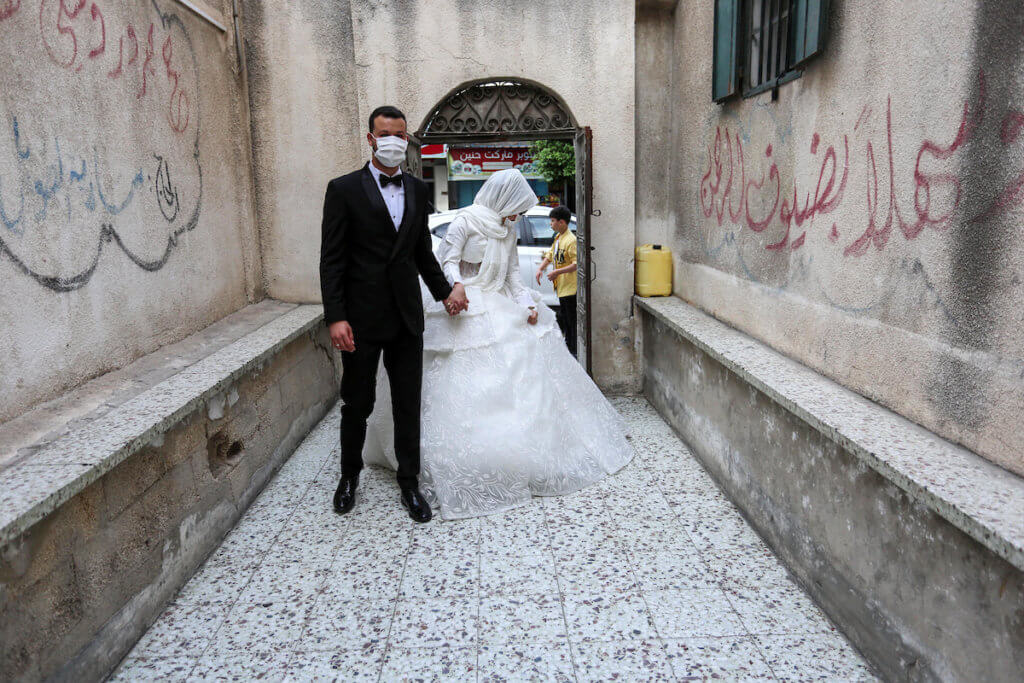This is the latest edition of our special coverage newsletter on the COVID-19 crisis in Palestine featuring dispatches directly from our Palestine correspondent Yumna Patel on the ground in Bethlehem. This newsletter is published Tuesdays and Fridays.
It’s been three weeks since the COVID-19 lockdown was lifted in Palestine. Now, the Minister of Health is warning of a second wave of the virus.
Since the lockdown was lifted, restaurants and clothing stores are busier than ever before, every day dozens of weddings are happening in cities and towns across the West Bank, funerals and wakes are carrying on without restrictions, and very few masks are in sight when walking the streets of the West Bank.
While the government assured its citizens that precautionary measures would be taken and enforced to prevent the spread of the virus, it’s becoming increasingly clear that that did not happen.
In the past five days, the Palestinian Ministry of Health has announced at least 20 new coronavirus cases in the West Bank, with the majority of cases reported in rural towns and villages in the Hebron district.
Several of the new cases were reportedly infected after coming into contact with Palestinians from Israel, who have been able to travel in between Israel, occupied East Jerusalem and the West Bank unhindered for a while now.
Additionally, movement between the districts in the West Bank has remained open, with no restrictions on people, for example, traveling between Ramallah and Bethlehem.
Before the country reopened, the Ministry of Health celebrated the fact that nine districts in the West Bank were virus free. Today, that number has dropped back down to four.
As of Tuesday, there were 115 active cases of the virus, with more than half of those cases being reported in the West Bank, and the other half split between Gaza and East Jerusalem.
As the number of cases continue to rise, talk of shutting the country back down is growing, with speculation that the shut down could happen as soon as this week, following the completion of the Tawjihi high school exams.
People are on edge, waiting for the moment the Prime Minister Mohammed Shtayyeh appears on their televisions and tells them that quarantine is starting all over again.
That scenario seemed even more probable on Tuesday after the Minister of Health Mai Alkaila warned of a second wave of the virus that is likely to hit Palestine even harder than the first time around.
Despite Alkaila’s warnings, and orders from Prime Minister Shtayyeh for security forces to enforce social distancing orders in public places and private businesses across the West Bank, their efforts seem to be futile, as people continue on with their daily lives with no concern for the coronavirus or the consequences that come with it.


